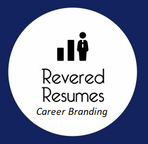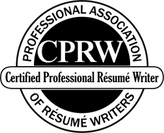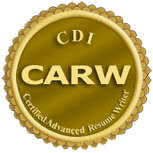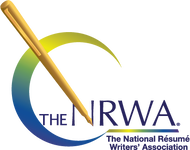 What Should Your Accounting & Finance Resume Look Like? If you know people that work in accounting and finance, you know they love working with numbers, are highly analytical and detail-oriented and love to solve problems. One thing they may struggle with is being able to put their achievements down in words. Writing a resume may be somewhat of a challenge for someone who specializes in analyzing data and executing calculations. Here are some tips to ensure your accounting or finance resume will stand out among the competition. Even during times when unemployment rates for accounting and finance professionals are near all-time lows, it is still a competitive market for job seekers. Senior managers in a recent survey conducted by Robert Half said that they typically receive 40 resumes for every open position, and they spend 12 minutes per resume looking for candidates to interview. Generally, recruiters will spend even less time, about 30 seconds, skimming resumes to send over to hiring managers for review, only glancing briefly at the top one third of each resume. Therefore, the first impression you want to make on a hiring manager is that you have what companies want, so you will need to make those 30 seconds count. When you write your accounting resume or you will want to closely follow the recommendations below: 1. Employ honesty and integrity when describing the scope of your prior role and any quantifiable information you share. At the top of your resume, highlight your skills and experience in an executive summary to convey your most impressive achievements. Present your career accomplishments and focus on what you achieved in each of your positions. In the education section, if you’ve been working in accounting for several years, you don’t need as much emphasis as if you were newly graduated. If you have work experience, place your education below your jobs, however, if you are a recent college grad and looking to transition into an accounting or financial role, you can put your education above your experience and highlight some of your relevant courses. 2. Be sure to proofread your document(s) a few times to ensure accuracy and grammar. Have someone you trust review, edit and check the document for spelling errors or typos. Having a second set of eyes can sometimes help catch things you may miss. You wouldn’t want to send out any resume blunders, such as one that describes yourself as “familiar with all faucets of accounting,” as if you were an accountant by day and plumber by night. Or listing “thieves well in high-pressure environments” as one of your core qualifications. It also helps to print out your resume for closer review, take a break and return with a fresh set of eyes. 3. Assess terminology that might be understood within the firm where you worked but has no meaning to an outsider who reads your resume. Watch for jargon and acronyms, too, and if the skills you used at your previous position aren’t transferable to the one you’re applying for, don’t give them space on your resume. Try to find words and phrases that can describe these terms in general accounting lingo that will be understood by new and prospective employers. 4. Make sure your skills match what’s in the job description. Most job postings for accountants include technical, software and interpersonal requirements. As you scrutinize your resume, ask yourself how well it matches the elements of the job description and if it conveys the match clearly and early in the document. 5. Showcase your achievements with numbers, whenever possible. How many invoices did you prepare and send out each week? Were you able to save your employer time by reducing the month-end close process and if so, how did you achieve that? How much time did you save? Were you successful in collecting on a severely past due account? If so, state how you did that and how much you were able to collect. Some achievements may not be possible to quantify but are still worth noting. For example, we recently wrote a resume for a Financial Analyst who aided in the development of a new database that automated the account reconciliation process. While the candidate couldn’t say how much money they saved exactly, they were able to state that they reduced the process from several days down to a few hours, freeing up several analysts to take on other projects. 6. Identify some keywords that the employer might be looking for, and try to use them in context, if they honestly describe your abilities. This resume tip will help resume-filtering software or Applicant Tracking Systems (ATS) find you when they’re scanning resumes. Even small and midsize organizations are beginning to use automated screening tools due to the sheer volume of applications received, and larger firms often use them to narrow the pool of resumes to be reviewed. 7. What about the length of the resume? Many applicants for accounting and finance roles often want to know how they can fit everything in their background if they should stick to the one-page sample they often see. In a recent Accountemps survey, 46% of senior managers said they prefer a one-page resume for staff-level candidates, while 47% said two pages is an ideal length. For executive roles, half of managers cited two pages as acceptable, while 21% were most receptive to one page. Our recommendation is that a two-page resume is acceptable if you have five or more years of experience. For additional feedback or to find out how we can help get your resume tailored for your next position, visit www.reveredresumes.com.
0 Comments
Your comment will be posted after it is approved.
Leave a Reply. |
Categories
All
Archives
December 2023
|
HOURSM-F: 9am - 5pm
|
|



